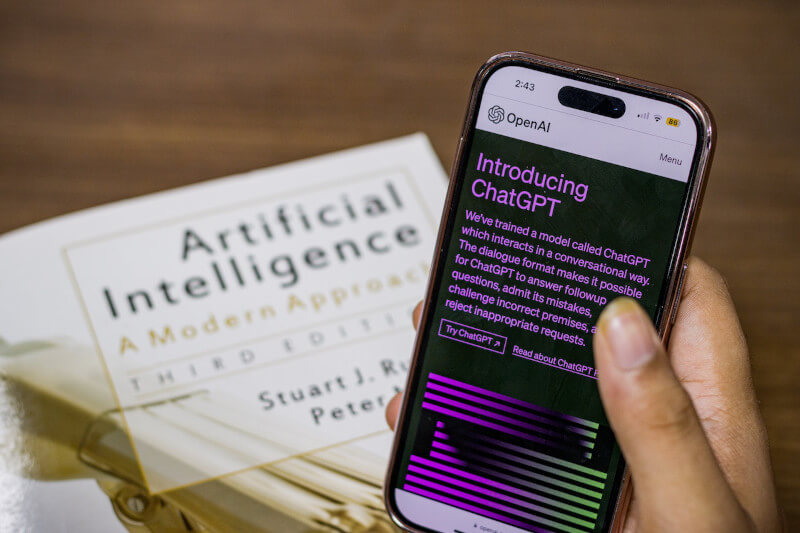Marketers’ methods of interaction and content production are evolving rapidly because of AI. It’s growing harder to identify what’s real and what’s generated by AI as these experiences become more commonplace. Content produced by brands should reflect the company’s values and ethos and have an organic, genuine tone.
But how can we assure the ethical use of AI-generated content? In this article, we’ll discuss the difficulties of maintaining credibility in the age of AI and offer suggestions for incorporating AI into content marketing groups.
The Meaning of “Authenticity”
Generative AI has made it difficult for everyone, even the U.S. Copyright Office, to agree on what constitutes original work. The following broad definition of authenticity, however, provides some groundwork.
For a brand, to be “authentic” implies being genuine and faithful to its own identity. That the brand is trustworthy in terms of its stated values and actual practices. This indicates that the brand’s marketing and communications are consistent with the brand’s stated mission, values, and beliefs. Also, an authentic brand has genuine ties to its target audience and the local community. Reliability and humanity are absent from this description. In a recent survey, we found that even those who make the most use of AI are skeptical of its reliability. Customers are likely to be skeptical of businesses that rely too heavily on content created by artificial intelligence.
The Importance of Being Honest
Distinguishing between human and machine-made content is becoming increasingly difficult. Consider “my definition” of genuineness, which isn’t mine at all.
It was made using a massive language model, or as Noam Chomsky puts it in an article for the New York Times, “a lumbering statistical engine for pattern matching, gorging on hundreds of terabytes of data and extrapolating the most likely conversational response or most probable answer.”
If I hadn’t told you, you might never have guessed. But does it matter? Using an LLM to summarise the definition of a thousand content marketers is inefficient. But if there is a limit, where do you set it? To my mind, there are more nuanced tones at play here. Consumers may have trouble distinguishing between authentic and artificial material due to the proliferation of AI-driven media.
It’s unlikely you’ll find a marketer who disagrees that being genuine is essential to creating engaging content. Consumers want to interact with brands that share their values and views, therefore it stands to reason that they value authentic content. But that doesn’t always coincide with results from artificial intelligence.
The Struggle for Authenticity in the Era of AI

Machine-generated output is competent enough to pass inspection, posing major issues even if massive language models fail the Turing Test. It is becoming increasingly difficult to tell what material was made by humans and what was made by machines.
Users of AI Often Have Trouble Verifying or Even Trusting the Results They Receive
Marketers that rely too heavily on such models may lose their ability to think independently. You can rewrite every sentence, but your interactions with the models may still steer you in unexpected places. The language models could be used to manipulate public opinion by spreading false information. Those already having a hard time being genuine may find the current climate much more trying. There is a risk that language models, such as the one utilised in this latest incident, could be used to manipulate and abuse people’s data and private information.
Inadequate communication skills may result from over-reliance on huge language models. I don’t know. This skill may soon become as obsolete as cursive writing. When consumers suspect they are reading machine-generated content, they may be less inclined to participate in substantive conversation. Ignoring the progress of AI is not an option despite these difficulties, or perhaps because of them. Because of how omnipresent it is, you can’t avoid using it.
Methods for Responsibly Integrating AI Into Content Marketing Teams
Your best bet is to give careful consideration to how best to incorporate AI into your content marketing strategy.
Examine Current Content Marketing Trends and Their Implications
Artificial intelligence (AI) is progressing at a breakneck pace, with some calling for a 6-month embargo on training AI systems more powerful than GPT-4. It’s more important than ever to keep your strategies cutting-edge and efficient in the current climate.
To successfully include AI in your content marketing team, you should develop a complete AI plan. You’ll have to evaluate your current material to find out what kind of AI-based solutions can assist you and how they can do so. The next step is to develop a plan for carrying it out. Making use of automation solutions can facilitate the streamlining of activities like content curation and generation. When used sparingly, they free up mental space for more imaginative pursuits.
Use AI-Generated Insights
These insights can guide your content marketing strategy and supply you with useful information for making informed decisions. Predictive analytics can be used to spot patterns, tailor offerings to individual clients, and monitor their preferences over time.
Pay Attention to Content Strategies That Are Human-Centric The greatest approach to guarantee successful engagement is to focus on people. It’s along the same lines as not making something just to have it ranked.
Takeaways
Content marketing relies heavily on authenticity, but it’s getting harder to tell when articles were written by humans and when they were generated by AI. Human-centric content strategies are essential for organisations to effectively engage customers and earn their confidence. Develop a comprehensive strategy for launching AI-based projects. Then your content marketing team can seriously explore adding genuine AI tools.
Take Care When Using AI
When utilised responsibly, AI has the potential to favourably affect content teams. MarketMuse’s AI-driven platform provides an impartial assessment of your content’s quality if you’re worried about it but don’t know where to begin fixing it. The use of artificial intelligence (AI) in marketing is undergoing dramatic change. Ethical use of AI-generated material is essential as it becomes more challenging to maintain authenticity.
Genuine material that reflects the consumer’s values and views is highly valued. Problems arise, though, when machine-generated content is good enough to pass muster. Integrating AI while keeping a human-centric focus into your content marketing plan is challenging, but vital. Creative thinking can be given more time and energy when AI-generated insights and automation solutions are put to use.
Understanding the potential benefits of AI-based solutions and how to implement them responsibly is made easier with a well-thought-out AI strategy. While caution when employing any new technology is warranted, content teams may benefit from embracing AI.


